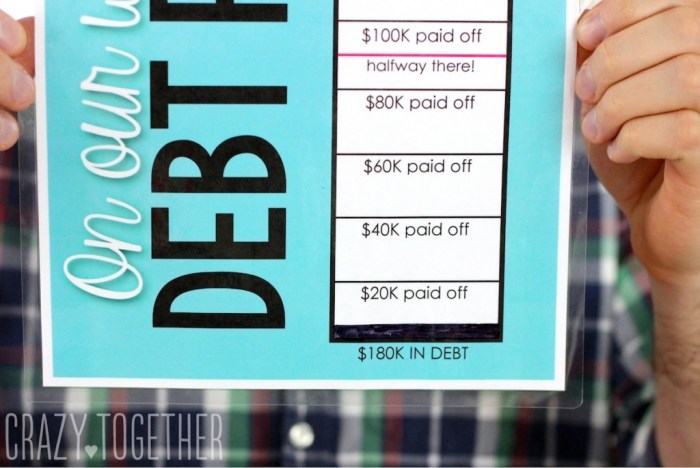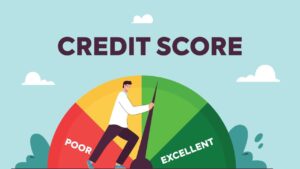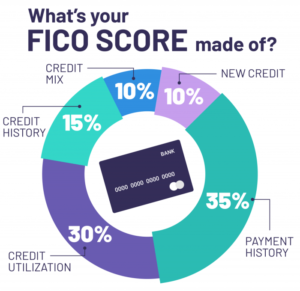
Welcome to the magical land where your wallet is as light as your conscience! With a Debt-free plan, we’re about to embark on an adventure that transforms you from a debt-ridden dragon into a financial phoenix, rising from the ashes of bills and creditors.
Understanding a debt-free plan is like knowing the secret recipe to the best chocolate cake—once you have it, everything falls into place! This guide not only breaks down the importance of wiping out debt but also gives you a step-by-step path to achieving your financial dreams, while cleverly dodging the common pitfalls that can trip you up like a cat on a laser pointer chase.
Debt-Free Plan Overview

Creating a debt-free plan isn’t just for the financially elite or those who have an overwhelming amount of disposable income. It’s an essential roadmap for anyone looking to take control of their finances, avoid those pesky late-night creditor calls, and ultimately achieve financial peace. Think of it like a GPS for your financial journey—except you won’t find “turn left at the next credit card bill”!A debt-free plan is a structured approach to eliminating debt and building a healthier financial future.
It helps you identify what you owe, create a budget, and develop strategies to pay off debts systematically. This is crucial because living with debt can feel like carrying a heavy backpack—you can only sprint away from it for so long before it starts dragging you down.
Steps to Create a Personalized Debt-Free Plan
Embarking on your quest for a debt-free existence requires a bit of strategy, like preparing for a treasure hunt where the treasure is financial freedom and the map is your personalized plan. Here are the essential steps to craft your debt-free masterpiece:
1. Assess Your Current Financial Situation
Gather all your financial documents. This means loan statements, credit card bills, and that heartfelt promissory note you accidentally gave to your cousin for a pizza. The goal is to know exactly how much you owe and to whom.
2. Create a Budget
Allocate funds for your monthly expenses while carving out a portion for debt repayment. This is where you can use the envelope system or a snazzy app—just make sure you don’t accidentally use your debt repayment envelope for takeout!
3. Choose a Debt Repayment Strategy
You can opt for the snowball method (paying off the smallest debts first for a quick win) or the avalanche method (tackling the highest interest debts first for maximum savings). Your choice determines your style—are you a fast-paced baller or a careful planner?
4. Set Achievable Goals
Break your debt repayment into manageable goals. Instead of saying, “I want to pay off my mortgage by next week,” try, “I’ll pay an extra $100 this month.” Baby steps lead to giant leaps!
5. Monitor Progress and Adjust
Keep an eye on your budget and progress. If you’re cruising along nicely, treat yourself to a small reward (like a fancy coffee). If you’re veering off course, revisit your plan and adjust as needed.
6. Stay Motivated
Surround yourself with positive influences, whether that’s a supportive friend or a motivational podcast. Nothing like a little cheerleading to keep you from splurging on those cute shoes that scream, “I’m a responsible adult!”
Common Pitfalls to Avoid When Implementing a Debt-Free Plan
As you charge ahead with your debt-free plan, watch out for these common traps that can trip you up faster than a toddler with a balloon:
Underestimating Expenses
Don’t just guess how much your monthly groceries cost; track your spending for at least a month to get the real deal. Those “emergency” snacks can really add up!
Ignoring Small Debts
It’s easy to overlook smaller debts thinking they don’t matter, but they can sneak up on you like a cat with a laser pointer. Pay them off and enjoy the peace of mind!
Not Adjusting Your Plan
Life happens—unexpected expenses pop up, and that’s okay! Adjust your plan as needed instead of throwing it out the window like last week’s leftovers.
Falling Back into Old Habits
Creating a debt-free plan is like building a new muscle. If you stop exercising, it will atrophy. Keep practicing good financial habits, or you’ll find yourself back at square one faster than you can say “interest rate.”
Lack of Patience
Remember, Rome wasn’t built in a day, and neither will your debt-free life be. Celebrate the small victories, and don’t rush the process—slow and steady wins the race!
“A debt-free life is not just a dream; it’s a achievable goal when you have a solid plan and the determination to stick to it.”
Strategies for Debt Management
Navigating the swirling waters of debt can often feel like trying to steer a ship through a storm without a compass. Fear not, for there are several strategies to help calm the turbulent seas of financial chaos. With a sprinkle of humor and a dash of creativity, let’s explore the various methods of debt consolidation and the roles credit counseling plays in the quest for financial freedom.
Debt Consolidation Methods
Debt consolidation is like gathering all your scattered toys into one neat box instead of tripping over them all over the house. It simplifies repayment, making your life easier while you work towards becoming debt-free. Here are a few popular methods of debt consolidation that can help you wrangle your financial mess:
- Personal Loans: Taking out a personal loan to pay off multiple debts can lower your interest rates and reduce the number of payments you need to keep track of. Just remember, not every superhero wears a cape; some wear a suit and carry a calculator.
- Balance Transfer Credit Cards: If you have credit card debt, consider transferring it to a card with a lower interest rate. Just be sure to read the fine print—some of those offers might have terms that are trickier than a cat video on the internet.
- Home Equity Loans: Using the equity in your home to consolidate debt can offer lower interest rates, but it can turn your lovely abode into a financial battlefield if not handled wisely. Always keep your home as the castle it is, not a pawn in the debt game!
Comparison of Debt Relief Options
Understanding the differences between various debt relief options is akin to knowing the difference between a toaster and a microwave—both are kitchen appliances, but you wouldn’t want to use a toaster for your soup. Below is a comparison table detailing several debt relief options, along with their respective pros and cons.
| Debt Relief Option | Pros | Cons |
|---|---|---|
| Debt Consolidation Loan | Single payment, lower interest rates | Possible fees, requires good credit |
| Credit Counseling | Structured repayment plans, professional guidance | May impact credit score, requires commitment |
| Debt Settlement | Reduced total debt, quick resolution | Severe credit impact, potential tax implications |
| Bankruptcy | Fresh start, legal protection from creditors | Long-lasting credit impact, asset loss potential |
The Role of Credit Counseling
Credit counseling functions as a friendly guide through the tangled forest of financial woes. When you enlist the help of a certified credit counselor, you’re not just getting advice; you’re gaining a sidekick in your battle against debt. They provide education, budget counseling, and tailored strategies to help you create a manageable plan.Credit counseling services often include:
- Creating a personalized budget that fits your lifestyle and expenses.
- Negotiating with creditors on your behalf to lower interest rates or payments.
- Providing educational resources to help you understand debt management better.
By working with a credit counselor, individuals can gain clarity on their financial situation, avoid common pitfalls, and embark on a more informed journey toward becoming debt-free. Consider it like having a financial GPS—navigating you away from the potholes of debt while keeping you on the right track!
Financial Tools and Resources
Managing your finances can feel like trying to tame a wild stallion—exciting but, let’s be honest, often overwhelming. To gallop towards debt freedom, using the right financial tools and resources is essential. These tools can help you whip your budget into shape, protect your assets, and navigate the sometimes treacherous waters of debt repayment.
Effective Budgeting Tips
A budget isn’t just a fancy word for a diet; it’s your financial roadmap to freedom! Think of it as a treasure map, guiding you to the gold at the end of your financial rainbow. Here are some tips to make budgeting less of a chore and more of a treasure hunt:
- Track Everything: Use apps or spreadsheets to keep an eye on every penny. Picture it as a detective keeping tabs on a suspect—every transaction is a clue!
- 50/30/20 Rule: Allocate 50% for needs, 30% for wants, and 20% for savings. It’s like splitting a pizza: everyone gets a slice, but not too much cheese, or things get messy!
- Set Realistic Goals: Aim for achievable targets. Remember, Rome wasn’t built in a day—neither should your financial empire!
- Review Regularly: Check in on your budget monthly or quarterly. If you don’t, it’s like letting your houseplant wither away—neglect is not a financial strategy!
“A budget is telling your money where to go instead of wondering where it went.” – John C. Maxwell
Design of an Estate Plan Trust
An estate plan trust is like a financial superhero—it swoops in to protect your assets while managing debt like a pro. Imagine it as a fortress guarding your treasure chest from the dragons of creditors and unexpected expenses. Here’s what to consider when creating one:
Asset Protection
Keeps your assets safe from creditors, ensuring they reach your loved ones. Think of it as a moat around your castle—no evil debtors allowed!
Tax Benefits
Depending on the trust type, it may provide tax advantages, allowing your estate to retain more of your wealth. It’s like having a secret tax shield that protects your goodies.
Control Over Distribution
You can dictate when and how your assets are distributed, ensuring responsible management by heirs. It’s like being the puppet master, pulling the strings even after you’re gone!
Avoiding Probate
Using a trust often helps bypass the lengthy and costly probate process. It’s like skipping the long line at the amusement park—straight to the fun!
Home Equity Loans in Debt Repayment Strategies
Home equity loans can be a double-edged sword in the battle against debt. On one hand, they offer potential relief, while on the other, they can plunge you into a deeper abyss if not handled wisely. Here’s a breakdown: Advantages:
- Lower Interest Rates: Typically, these loans come with lower rates compared to credit cards. It’s like getting a discount on your financial baggage!
- Access to Cash: You can tap into your home’s equity for consolidating debt. It’s like finding hidden cash in your couch cushions—unexpected but very useful!
- Tax Deductibility: Interest paid may be tax-deductible, providing additional savings. It’s like having a tax fairy sprinkle some glitter on your finances!
Disadvantages:
- Risk of Foreclosure: If you default, you risk losing your home. That’s akin to betting your house on a game of poker—high stakes!
- Fees and Closing Costs: These loans can come with fees that eat into your savings. Think of it like a sneaky gremlin nibbling away at your funds!
- Potential for Increased Debt: If you’re not careful, you could fall into the trap of increased borrowing. It’s like feeding a hungry monster—once you start, it just wants more!
Final Conclusion

As we wrap up our thrilling journey through the Debt-free plan, remember that financial freedom is not just a destination; it’s a fabulous and fun-filled road trip! With a sprinkle of discipline, a dash of savvy strategies, and your newfound arsenal of resources, you’ll be well on your way to living your best debt-free life. So buckle up and enjoy the ride!
FAQ Corner
What is a debt-free plan?
A debt-free plan is a strategic approach to eliminate debts and achieve financial independence, ensuring you live comfortably without the weight of financial burdens.
How long does it take to become debt-free?
The timeline varies based on individual circumstances, but with dedication, you can see significant progress in a few months to a few years!
Can I still use credit cards with a debt-free plan?
Absolutely! But treat them like a pet dragon—use them wisely, and they can be beneficial; ignore their needs, and they might burn your finances!
Is it better to pay off debts with high interest or low interest first?
Generally, tackle high-interest debt first for a quicker financial win, but consider your personal motivation to stay on track too!
What resources can help me stick to my debt-free plan?
Budgeting apps, financial advisors, and support groups can keep you accountable and motivated, like your personal cheerleading squad!







